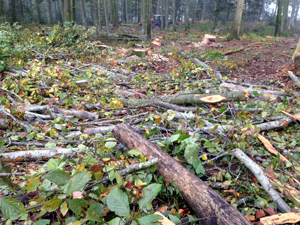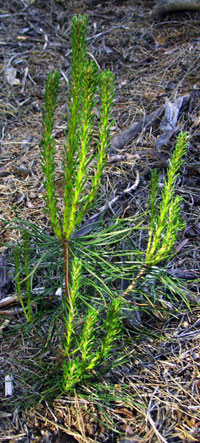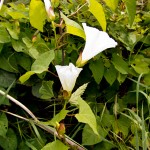Planting trees – millions of them – part 2

Woodlands and forests can help to slow global warming and associated climate change (which results in extreme heat, drought, floods and famine /poverty). Trees release water through transpiration into the atmosphere and ‘encourage’ rainfall. Trees also help to reduce air pollution, they provide habitats for wildlife and economic benefits in terms of employment for local people.
Governments across the globe are finally realising the potential of “natural solutions” to climate change, namely reforestation and ecological restoration of habitats – both of which allow for carbon sequestration - ‘locking up carbon into organic form’. It has been estimated that such natural solutions could go a long way towards stabilising global heating below the critical 2oC threshold
 In March this year, the United Nations announced a "Decade of Ecosystem Restoration" and has a target area of some 350 million hectares, which, if achieved, could remove 26 gigatons of greenhouse gases from the atmosphere. Pledges have been made, for example India promised to plant 13m hectares of forest by 2020, whilst Latin America is aiming for some 20 million hectares.
In March this year, the United Nations announced a "Decade of Ecosystem Restoration" and has a target area of some 350 million hectares, which, if achieved, could remove 26 gigatons of greenhouse gases from the atmosphere. Pledges have been made, for example India promised to plant 13m hectares of forest by 2020, whilst Latin America is aiming for some 20 million hectares.
Even the United Kingdom is making a contribution; for example through the Urban Tree Challenge Fund. This will encourage the planting of some 130,000 trees in towns and cities over the next two years (grants for the plantings will be made available). The scheme, administered by the Forestry Commission, will be open to local authorities, individuals, charities and NGOs. The Grants will cover the planting of trees and the first three years of their care - in order to ensure that they establish and grow. Trees help prevent overheating and reduce air pollution. There is also the initiative from the Committee on Climate Change - as discussed in a previous blog.
However, pledges and promises are one thing, the actual outcomes and results of initiatives can be very different. In 2014, the United Nations pledged to substantially reduce deforestation by 2020, but last year (2018) an area of primary forest the size of Belgium was lost. However, putting such negative thoughts aside, some projects are gaining traction - for example, TreeSisters.
TreeSisters is a world-wide network of women, who donate each month to fund the restoration of tropical forests. Their website says “Our goal is to make it as normal for everyone to give back to nature as it currently is to take nature for granted”. Their June newsletter says that some 4,672,764 trees have been funded. This metric is “The number of trees funded is trees that are potentially establishing; meaning growing roots and trunks and branches, thanks to the level of funding received. It is a direct conversion of the level of funding into a number of potentially establishing trees.”
Some of their projects use Assisted Natural Regeneration (ANR). ANR is a “forest recovery method which aims to help forests recover or regenerate faster than they would naturally and with low interventions. It consists of suppressing any factors that prevent tree seeds from germinating, surviving, and growing, and thus stopping forests from taking root.” ANR is being used in the Khasi Hills, India and the Atlantic forest of eastern Brazil.
Interestingly, TreeSisters works with the International tree Foundation (ITF). The ITF was founded in 1924 by a Kenyan colonial forester - Richard ‘St Barbe’ Baker. He was truly a man who was ahead of his time, recognising the importance of trees and forests in sustaining life on Earth. He inspired people across the world to join him in planting and protecting trees. In 1924, he established the society of the Men of the Trees, which subsequently evolved into the ITF. Now the ITF works with local women to support reforestation, for example, by establishing small nurseries of native trees at the forest fringe, another scheme enables local people to temporarily grow potatoes in reforested areas - this short term cultivation helps native trees grow ‘weed free’ until established. Paul Laird, the programmes manager at ITF has said “One of the very clear learnings we’ve had is that the more you can work with local organisations that are women-led or driven by women, the better your results”
He inspired people across the world to join him in planting and protecting trees. In 1924, he established the society of the Men of the Trees, which subsequently evolved into the ITF. Now the ITF works with local women to support reforestation, for example, by establishing small nurseries of native trees at the forest fringe, another scheme enables local people to temporarily grow potatoes in reforested areas - this short term cultivation helps native trees grow ‘weed free’ until established. Paul Laird, the programmes manager at ITF has said “One of the very clear learnings we’ve had is that the more you can work with local organisations that are women-led or driven by women, the better your results”
Comments are closed for this post.
